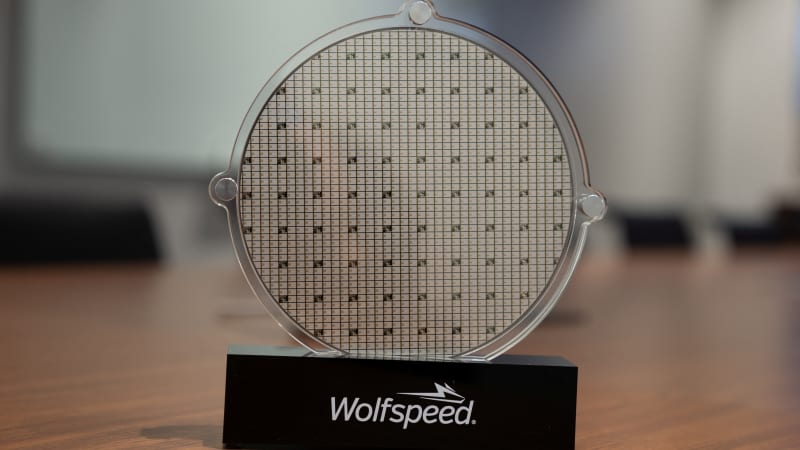Chip maker Wolfspeed to build new U.S. factory to meet surging EV demand

U.S. power chip maker Wolfspeed Inc on Friday said it will build a new multi-billion dollar factory in Chatham County, North Carolina, to make the raw materials used for chips that power things like electric vehicles as demand surges.
While traditional power management chips have been made with silicon, which is also used for microchips that run computers and phones, Wolfspeed uses a relatively newer material called silicon carbide to make chips. Wolfspeed is considered a leader in this technology and says it produces more than 60% of the world’s silicon carbide.
Silicon carbide power chips have been gaining traction with electric car makers as they can handle high voltages and are more power efficient. Wolfspeed said industry analysts estimate these types of power chips will make up more than 20% of the power semiconductor market by 2027, up from only 5% today.
The factory, due for completion in 2030, will be the largest silicon carbide materials facility in the world, it said. The silicon carbide wafers from the plant will initially be used mainly for Wolfspeed’s own chip manufacturing needs.
Earlier this year Wolfspeed opened the world’s first 200 mm silicon carbide fabrication facility in Mohawk Valley, New York, and is scoping locations for another large facility, John Palmour, Wolfspeed’s chief technology officer, told Reuters. Other chip makers use smaller sized wafers. Generally the larger the wafer, the more advanced the manufacturing technology is.
Palmour said the new materials factory is about a 40 minute drive from the company’s existing factories in North Carolina. “It’s actually going to enable eventually about a 13-times increase in our silicon carbide wafer making capacity,” he said.
The first phase of the factory, slated for 2024, would have an investment of about $2 billion and the total investment could reach $5 billion, Palmour said.
Wolfspeed would apply for a federal government grant linked to the recently passed Chips and Science Act, he added.



